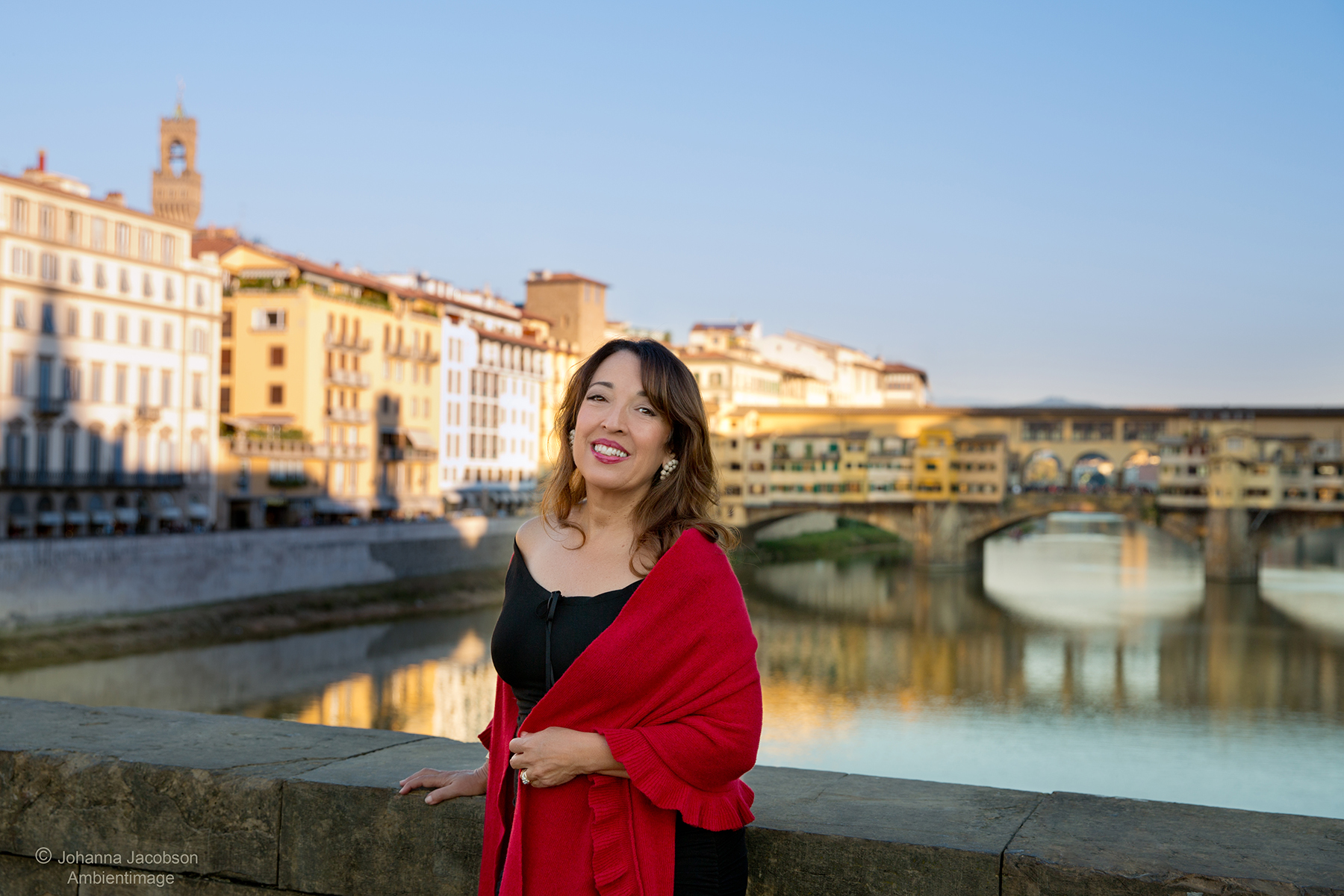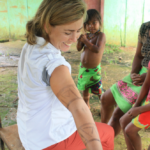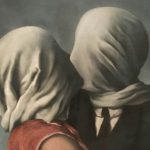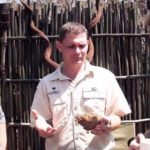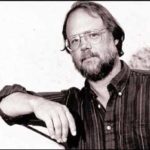Susan Van Allen is the author of 100 Places in Italy Every Woman Should Go (Travelers’ Tales). Her love for Italy stems from her maternal grandparents, who emigrated from Southern Italy. She was born in Newark, New Jersey, and grew up on the Jersey shore amidst wonderful food and drama. When she first stepped off the train into Roma Termini in 1976, she got hooked on Italian travel. Since then she’s explored the country up and down the boot — visiting relatives, immersing herself in masterpieces, taking language and cooking classes, and going on boating, biking, and hiking adventures. She’s written about Italian travel for NPR, magazines (including Tastes of Italia and Town & Country), newspapers, and websites. Van Allen also writes for television, and was on staff of the Emmy winning sitcom Everybody Loves Raymond. When she’s not in Italy, she’s based in Los Angeles, where she lives with her husband and makes scrumptious lasagnas.
How did you get started traveling?
It started with a deep yearning to go to Italy, instilled in me by my Italian immigrant grandparents. When I was a kid I’d sit at their dining room table in Newark, New Jersey for endless Sunday dinners and feel totally wrapped up in the abundant, loving heart of their homeland — intrigued by this faraway place. Then every August, my grandfather would get on a ship and go visit his sister who still lived near Naples. He’d send back postcards of giant fountains, piazzas, a big naked guy my mother said was called, “David.”. After Labor Day he’d come back to Jersey and get off that ship with packages: rosaries blessed by the Pope, glass beads from Venice, rocks from Mount Vesuvius. So Italy became this magical place, beckoning me like a cartoon finger billowing out of a pot of bubbling tomato sauce. I saved up money from my after school jobs at The Pancake House and Dunkin’ Donuts and got there as soon as I could after high school graduation in 1976, with a pack on my back and a Let’s Go Europe under my arm.
How did you get started writing?
I grew up with the best inspiration for any writer: a house full of books. My father was Director of the Library at a local college, so there was always something great to read lying around. Though I loved writing poetry and long-long letters in that Janis Ian 1970s kind of way, I started out creatively as an actress. I had a ball being in high school musicals, majored in drama in college, and then headed out to San Francisco where I acted in a traveling Shakespeare Company and experimental theater ensembles. This was in the 1980s when there was a lot of solo performance going on. I started to write monologues and short stories to perform around town — writing came naturally from performing.
What do you consider your first “break” as a writer?
There was a San Francisco Monologue Contest and I won for one of the first things I’d ever written — a monologue about a wanna-be lead guitarist of a rock band — it was a character based on a neighbor of mine. The win was a shock. It gave me the push to write more monologues and put them together into a full length solo show.
As a traveler and fact/story gatherer, what is your biggest challenge on the road?
Keeping the balance between being open to serendipity and staying focused on the story. I’d love to split myself in two while I’m traveling. There’d be Susan One, fully immersed in the experience, moment by moment, and Susan Two, taking photos and perfect notes. I’m finding over the years I take less notes on site, and am trusting more that the important elements of the experience will stay with me — as long as I scribble those thoughts down before bed! I always remember the sensual and emotional details of the story, but what gets frustrating is when I get back to my desk without all the photos I would have wanted or the facts (opening hours and addresses) written down. I’m so grateful for the telephone and internet to catch up with this. Still, I fantasize of someday traveling with that perfect Susan Two assistant.
What is your biggest challenge in the research and writing process?
I LOVE the research process — maybe it comes from my librarian father. And the fact that Italian history is so richly entertaining. So the challenge for me is to pull myself away from the research and start writing. Of course, research is also one of the many fun ways to procrastinate. And the writing process for me always comes along with the classic obstacles (Inner demons that taunt: this is the worst thing ever written, no one will understand this, etc)…So why not keep researching? Plus research is so justifiable. For example, while I was writing the Villa d’Este entry for 100 Places, even though Lucrezia Borgia was only a small part of it (Cardinal D’Este’s mother), I got totally sucked in to researching her and the whole corrupt Borgia family and wound up reading volumes about them. In the end, the Borgia story only took up two paragraphs of the Villa d’Este entry. Many would scold me to work more efficiently, I suppose.
What is your biggest challenge from a business standpoint?
There’s always the threat of business details gobbling up the creative process — it’s a whole other mode of procrastinating: Be sensible, take care of business! Luckily I don’t find much of the business end as enjoyable as research so I don’t get as distracted by it. And at this point I’m fortunate because my publishers/editors (Travelers’ Tales) have brought on an excellent publicist (Bella Figura Communications) to promote 100 Places In Italy Every Woman Should Go.
Have you ever done other work to make ends meet?
For many years, while I was acting in San Francisco, I did temporary secretarial work for law firms. It worked out perfectly for me — I could do my own writing to keep looking busy, xerox flyers for my shows, and I always had a healthy supply of paper and pens.
What travel authors or books might you recommend and/or have influenced you?
The first thing that pops into my head is the earth shattering experience I had in my early 20’s of reading the opening pages of Henry Miller’s Tropic of Cancer. while riding a bus in San Francisco. Miller brought me to Paris — the seedy and glorious sides of it —so vividly and with such verve. Jack Kerouac’s On The Road had the same effect. Both writers delve into the full spectrum of emotions that come with discovering ourselves in a new place — from utter frustration to bliss. Their books are truthful travel writing, reveling in the freedom travel brings.
What advice and/or warnings would you give to someone who is considering going into travel writing?
It would be the same advice I’d give to any writer: Write your truth. Your story, unique experiences and point of view, is what I love to hear. Have patience. Don’t give up.
What is the biggest reward of life as a travel writer?
The people who I’ve met along the way. Travel writing has given me the chance to get to know people more intimately than I would if I’d just met them on a vacation. As a writer, I can immediately start talking with them about the meaningful stuff of our lives. I’ve absolutely loved meeting and learned so much from art historians, farmers, chefs, scholars, cab drivers, and children along the way. It’s also been great meeting other writers, editors, and fans of Italian travel. It’s amazing when I stand back and take it all in: That passion for Italy that was instilled in me at my grandparents’ dining room table has become a unifying force in my life.

